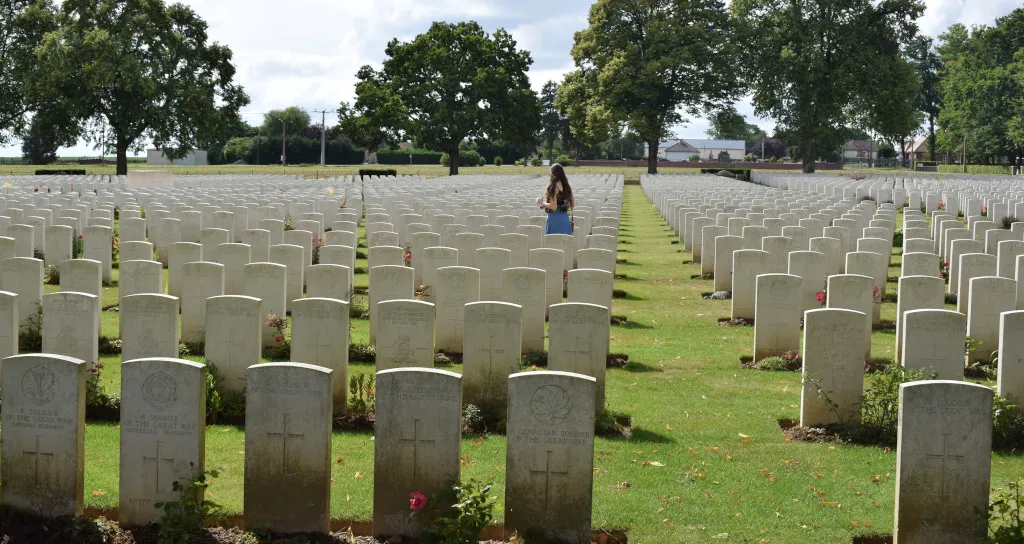The centenary of the end of World War I is on the 11th of November, 2018 — in seven days time. This is an introduction to a series of posts leading up to that day.

WW1 military cemetery, Delville Wood, France (own source)
Global war
The First World War was the first truly global conflict. Nations from around the world participated, with terrible casualties: of the approximated 40 million military and civilian casualties, there were:
- 15 to 19 million deaths
- 23 million military wounded
- 9 to 11 million military deaths
- 8 million civilian deaths (including 6 million war-related famine and disease)
No wonder US diplomat George Kennan declared it “the great seminal catastrophe of the 20th century”.
The countries involved included,
- Allied powers: Australia, Canada, India, New Zealand, Newfoundland, South Africa, United Kingdom, Belgium, France, Greece Italy, Japan, Montenegro, Portugal, Romania, Russia, Serbia, United States
- Central Powers: Austria-Hungary, Bulgaria, Germany, Ottoman Empire
The mystery
History has always fascinated me, from the small stories that add to the fabric of humanity to the grand narratives of war and peace. The Great War always loomed in the background as a great mystery to me. I was aware of the enormous tragedy that was that War. The terrible trench warfare, the use of poison gas, the great battles. But I never really understood the war. Yes, I knew it started when Archduke Franz Ferdinand, heir to the Austro-Hungarian throne, was shot dead in Sarajevo. But why would a political assassination cause a global war? Why would other nations really care? And who actually started the War?
So before the centenary of the start of the War (28 July 1914), I decided I would try and understand the War as best as I could and follow the War in its centenary through to the end.
To this end, I followed the Twitter account @RealTimeWWW1 early in 2014 so that I could specifically understand the full context before the outbreak of the War. I have followed the tweets every day since to get an idea of the pace at which it unfolded. I also read books on the subject, starting with the classic, The Guns of August, by Barbara Tuchman.
I can't say I now fully understand the War — who can ever really understand war — but at least I've cleared it up in my own mind.
Your invitation
So over the next seven days, I intend to cram four and a half years of global conflict into seven fairly short posts. I won't (and can't) present all the battles and the characters, but hope to explain the catastrophe in broad strokes. So the posts will examine:
- The lead up to and the start of the War
- The invasion of Belgium and France
- The Gallipoli campaign
- The great battles
- America joining the War
- Armistice, the end of the War
So if you're interested in getting some insight into the Great War, which was to become known as World War 1, please follow me over the next week.
Also posted on Weku, @tim-beck, 2018-11-04